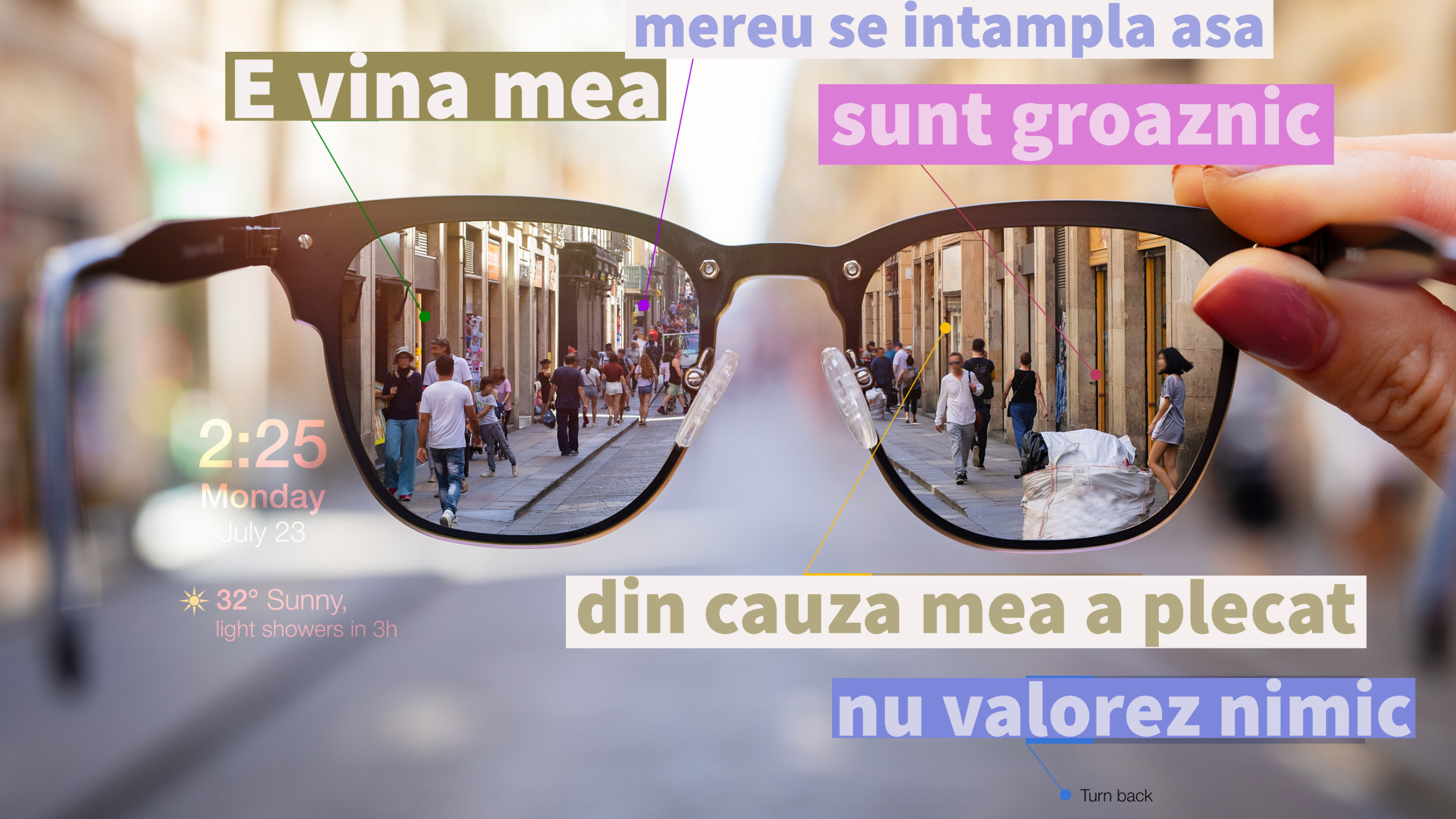Stories?! Who has time for that these days? We only read them when the little ones ask, unless we use modern technology and play it on youtube.
Well, we tell ourselves stories, consciously or not, but we don’t call them stories anymore. Usually the adult story begins with I Believe… Perhaps our story is a belief about life, about love, about relationships, a belief most probably rooted in the first years of life, what some authors, such as Jaques Salome and Sylvie Galland, call personal mythology. These beliefs or stories that we tell ourselves sometimes act as a blockage in our daily relationships. Working consciously to identify our own beliefs, understanding and integrating them, can be a source of overcoming what we thought were our limitations.
Our reactions to facts, events, to the said and the unspoken are rather related to the interpretation we give them than to the situation itself. And here the stories come into play. Either they are reactive beliefs, as J. Salome and S. Galland call them, born of our emotional needs, or our imaginary, the way we position ourselves in the world, what Jung called the persona, but which can be very different from the way that others perceive us, or beliefs about justice or injustice, our interpretations give rise to the story according to which we choose our words, deeds and actions.
Georges Colleuil introduces in the Referential Birth Chart metod the idea of interdictions, conscious or unconscious, which act and capture the sometimes limiting tendency of our beliefs. And what lies behind an interdiction? A fear… Fear of being hurt, of failing, of disappointing, of being judged or abandoned, to name just a few, can generate the conviction that if we forbid that (conscious) behavior, if we will avoid those situations or events we will be protected.
Sometimes interdictions are built in the first years of life, unconscious parental programs, and end up shaping the whole personality of the individual.
“You will be a doctor, like your mother, grandmother and great-grandmother…” Well, if the person wants to be a doctor, we are in a story with a happy ending. But what happens when the individual feels the artist’s call… “I want to be an actor, to play on stage….” Here it depends on what beliefs were created based on what the parents, with good intentions, transmitted to the person in question. If the individual has created the belief that only by respecting the parents’ plan will he receive the recognition and affection he needs, he will deeply feel this gap between the parental and the personal project. Maybe he will rebel, maybe he will go to medical school but he will drop out of school, or maybe he will become a successful doctor and get to work the deep feeling of emptiness, absence and lack that he will meet one summer day after completing a complicated heart transplant.
The first step to consciously work on individual development, overcoming limiting beliefs, escalating interdictions and turning them into opportunities is to accept that they exist. Then, being gentle with us, guided by our intuition or by a trusted adviser, we can consciously rewrite the story of our encounter with ourselves.
“In one’s own shadow, the most wonderful meetings take place.” (J. Salome & S. Galland)
An exercise in imagination – I suggest you set a meeting with yourself, and maybe, if you feel inspired, write down what would you ask yourself at your first meeting. Come back in a few days and answer the questions quietly, without the pressure of time and reflect:
- Who answered? You? Your parents? Your partner? Your colleague or hierarchical superior?
- And if you had no restrictions, no material, emotional or any kind of constraints, if the answers are anonymous… what would you really answer?
written by Monica Măgureanu








